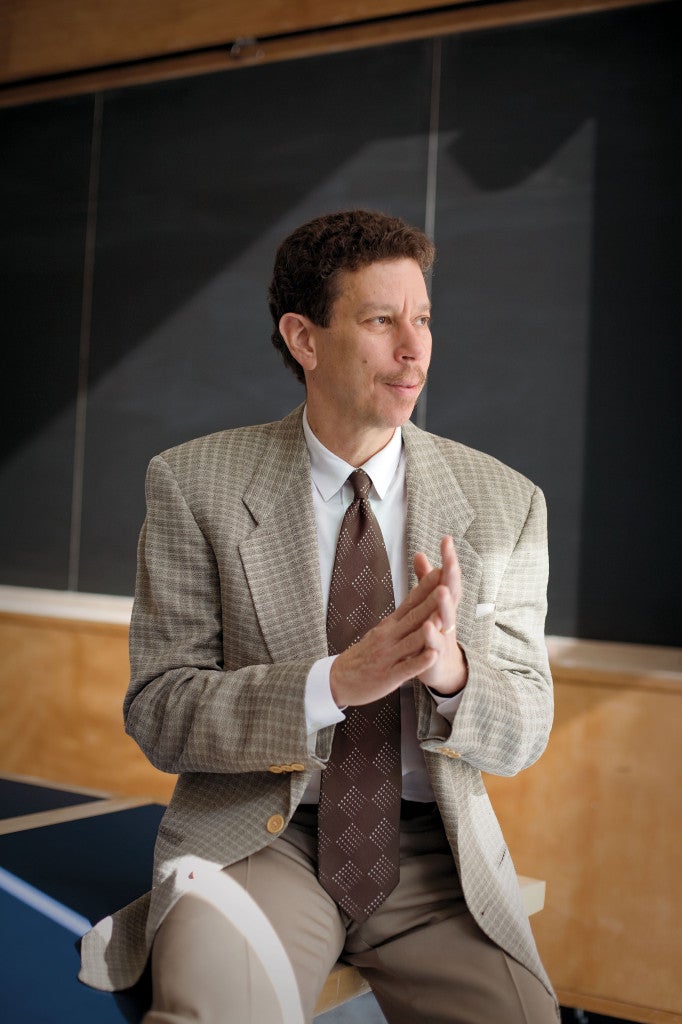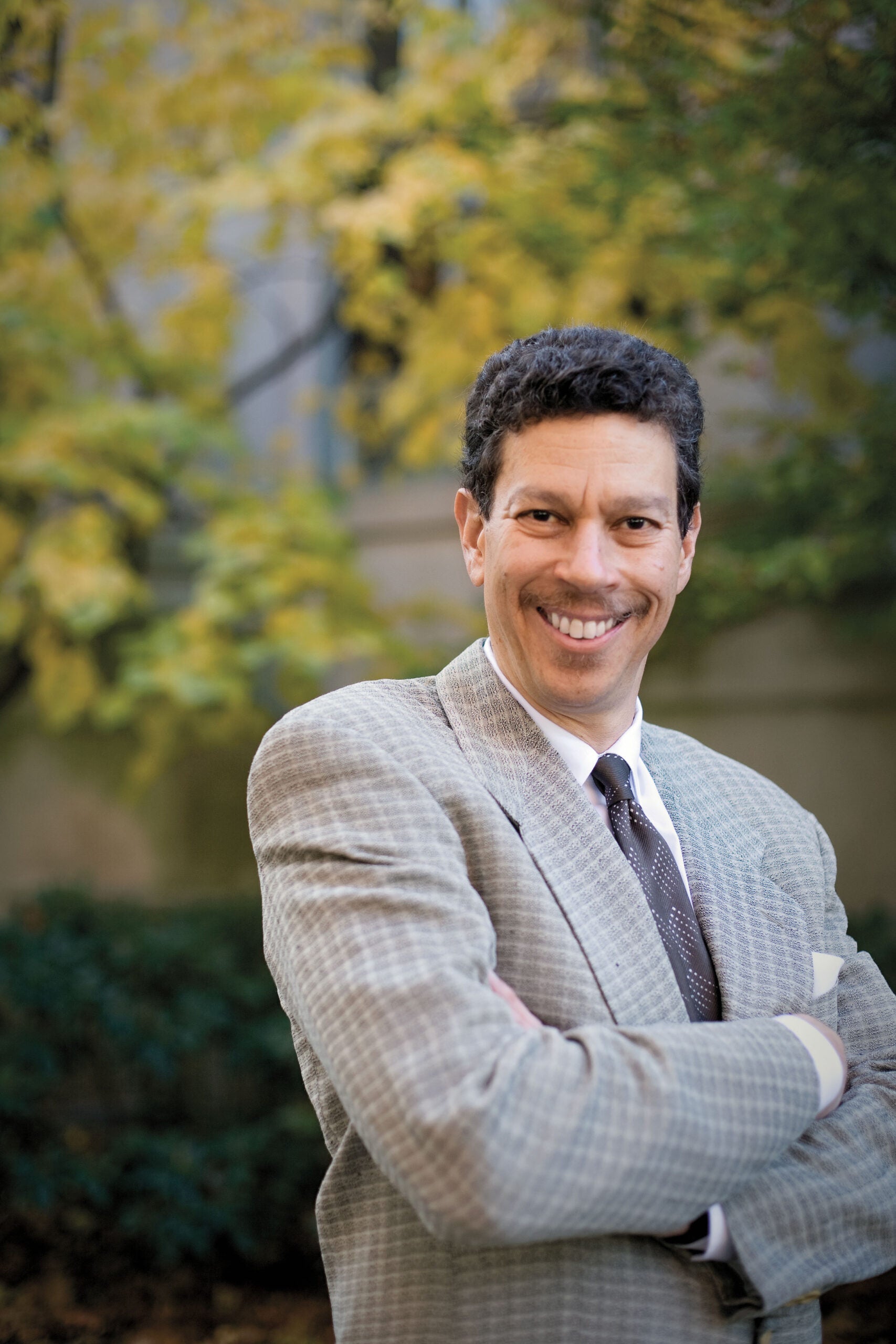How will globalization reshape the practice of law—and the training of lawyers?
In the wake of the current economic crisis and growing globalization, the job market for lawyers is tougher than at any time in recent history. We asked Professor David Wilkins ’80, head of HLS’s Program on the Legal Profession, how these factors will shape legal practice and education.
DW: The hope is that out of any crisis comes opportunity. In the 1930s, many of the structures of law firms that we take for granted today were—if not quite created—cemented in the heart of that economic crisis. Today I think we see many law firms experimenting with new ways of hiring, training and developing lawyers. These include firms that have eliminated the traditional associate classes in favor of models that are much more performance- and developmental-based. Some are experimenting with hiring lawyers at an entry-level position and then giving them meaningful targets that they have to make and performance standards that they have to meet and then promoting people according to their ability to meet these standards. We don’t yet know how well these new organizational forms are going to work, and whether, once the economy comes back, the interest in them will be as strong. But I think many people felt that the model of the traditional large law firm—which has existed since the turn of the 19th century—was in need of some serious rethinking, and I think this will end up being a time of important experimentation and innovation.

Professor David Wilkins is focused on structural changes in the legal profession, beyond the recession.
I’m hoping that other institutions like law schools and corporate clients and government agencies and public interest organizations will also use this opportunity as a time to rethink what they’re doing. I think it’s possible that the legal industry and its various institutions will emerge stronger from the current situation. In fact, globalization is likely to increase those opportunities, as people can think about building careers not just in their home country but ones that are truly global in nature. So long as society needs ordering and the economic system needs rational and defensible boundaries, there’s going to be a need for talented people to go into law. In fact, I think we’re likely to emerge with much more regulation to try to keep the economy and its dislocations in check and that lawyers are going to play a pivotal role in writing this regulation, in enforcing it and in helping clients to comply with it.
You were recently named the school’s first vice dean for Global Initiatives on the Legal Profession. What specifically can law schools do to better prepare students?
DW: Law schools have never done an especially good job of preparing students for the realities of the job market or legal practice generally. Instead, schools have primarily concentrated on teaching students how to “think like a lawyer” and depended on employers to teach them how to be lawyers—and on students to navigate their careers on their own. Whatever its merits in an earlier era, this division of labor is no longer acceptable in a legal world that has become increasingly complex and treacherous—where new lawyers are expected to hit the ground running and traditional institutions and career paths are being transformed. Law schools owe it to our students, our alumni and the public at large to attempt to understand how the legal profession is changing in response to larger economic, political, and social forces and to devise new ways for preparing lawyers to navigate and thrive in this dynamic environment.
Dean Martha Minow has charged me with evaluating how the school currently connects to the profession, and working with a committee of my colleagues, to develop new ways to prepare our students for their careers. The school has already launched a series of initiatives, including a new Problem Solving course, which will begin in January for all first-year students, using in-depth case studies that place students in realistic lawyering contexts; an effort to more fully integrate what students learn in our excellent clinical offerings into the broader curriculum; and the Harvard Law School Career Study, initiated by the Program on the Legal Profession in 2008, which should help us incorporate information about alumni careers into the shaping of the curriculum.
It’s true that the economic downturn has highlighted problems with the recruiting process at this school and across the country for those going into law firms and public interest employment. The school has already taken steps to help [see sidebar]—but we are taking a hard look at our placement processes and more broadly how they contribute to problems for law students entering the profession.
To open up that sort of national and international conversation, we are planning a conference on rethinking legal education involving top educators, professionals, and policymakers in this country and abroad to investigate and identify best practices around the globe and to discuss how law schools can and should both respond to and help to shape the changing structure of legal careers and institutions.
Needless to say, these efforts are in their early stages, but we believe they are important steps in helping our students navigate the complex boundaries of today’s dynamic legal environment.
